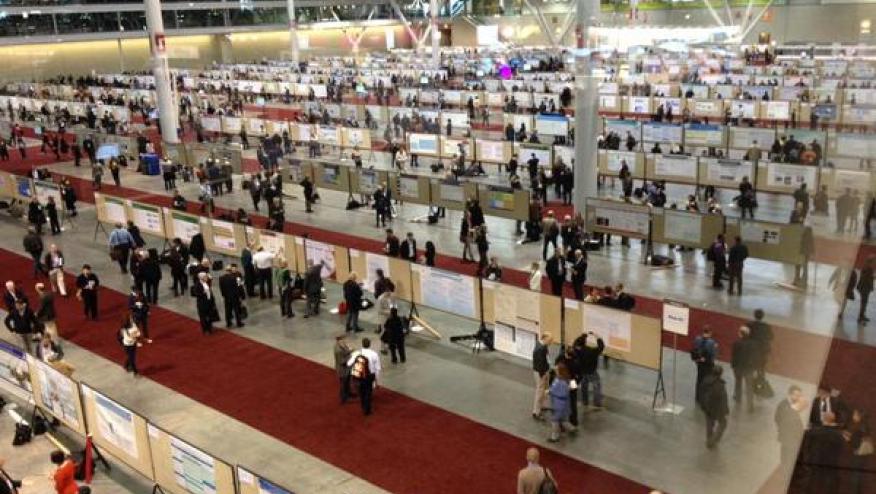EULAR 2024 – Day 3 Report Save

EULAR treats its attendees to a wonderful lunch each day – Schnitzel, gnocchi, goulash at lunch after muffins and coffee in the morning. It's no wonder the meeting has been a lively one, well attended with a wealth of stimulating ideas, research and discussion.
Here are a few of my favorite abstracts and presentations from today, day 3 in Vienna.
FVC Trajectory Portends Trouble in RA-ILD
Sparks and colleagues reviewed the outcomes in 172 rheumatoid arthritis (RA) patients with interstitial lung disease (ILD), followed with serial PFTs and FVC assessments. A significant number had ILD-related deaths (n=44) or went on to receive lung transplants (n=7). Serial (q 6month) FVC demonstrated a trajectory that was either a) stable/improving (32%); b) slowly declining (54%), or c) rapidly declining (14%). The shocking finding was that patients with FVC trajectories that declined over 3 years (grous b & c) had significant risks for either lung transplantation (OR 19.2) or ILD-related death (OR 4.85). Trajectories for these patients were evident by 6-12 months, suggesting that close monitoring of lung function in RA-ILD patients can yield important prognostic information.
EULAR Guidance on Targeted Therapy (TT) Use in Arthritis Patients with Cancer
Gottenberg, et al presented the EULAR “Points to Consider” document on managing inflammatory arthritis patients with cancer in remission. This was a coordinated work product of a 27 member (25 rheumatologist) EULAR task force who reviewed the recent literature to give up to date guidance on key clinical decisions in these difficult to manage patients. Their recommendations are based on 15 new research articles concerning inflammatory arthritis patients treated with TT and observing the effects on subsequent cancer risk. The final guidance document will be published in a future edition of Annals of Rheumatic Disease. There were five overarching statements followed by 8 “points to consider”:
| EULAR Points to consider: Treating inflammatory arthritis patients with a history of cancer |
| 1. Effective treatment of inflammatory is important to reduce the risk of malignancy |
| 2. Complications of undertreated arthritis needs to be balanced against risk of therapy related cancer recurrence |
| 3. Rheumatologist should engage other cancer specialists in co-managing arthritis patients with a history of cancer |
| 4. Antirheumatic treatment can be initiated without delay in patients with cancer in remission (esp. within 5 yrs of CA diagnosis) |
| 5. In patients with a history of cancer, JAK inhibitors and abatacept may be used with caution (only in absence of alternatives)* |
| 6. With a history of “solid cancer”#, anti-cytokine bDMARDs (TNFi, IL-6i) may be preferred over other options |
| 7. Patients with a history of lymphoma, B cell depleting therapy may be preferred over other options |
| 8. Active inflammatory arthritis and cancer not in remission: therapy choices based on shared decision between the patient & doctors |
*5/6 abatacept observational studies of RA without cancer showed significant increased risk of cancer (HR 1.02-2.12) (2017-2022)
# More research and data are needed on optimal choices in patients with melanoma (“but melanoma patients can receive TNFi”










If you are a health practitioner, you may Login/Register to comment.
Due to the nature of these comment forums, only health practitioners are allowed to comment at this time.